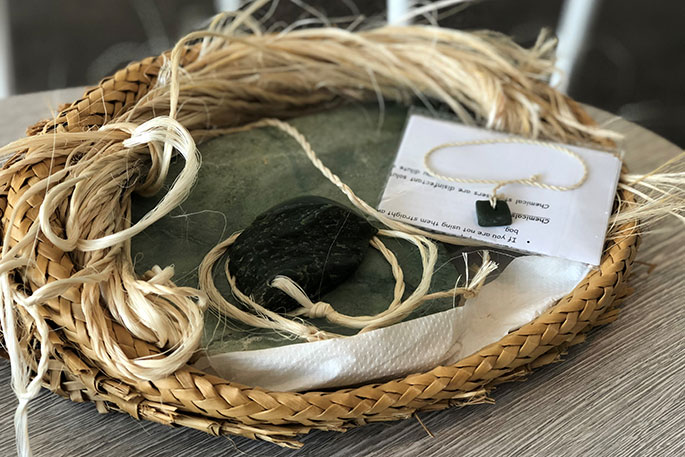Tauranga families will have more options when it comes to birthing practices following the introduction of a traditional Maori birthing tool at Bethlehem Birthing Centre.
The centre has recently introduced a pounamu pito (umbilical) cord cutter for families to use post-birth, which falls in line with traditional Maori birthing practices.
According to Te Ao Maori, there is a strong sense of connection between people and the land they come from – people come from Papatūānuku (earth mother) and when they die they then return to Ranginui.
This same view is adhered to during birth, where traditional practice is to bury a child's whenua (placenta) into their whenua (land), as a way to give back to Papatūānuku.
During labour the umbilical cord is tied by muka, which is the white fibre inside of harakeke (flax), before it is cut with a sharpened pounamu (greenstone) or tuhua (obsidian stone) in a sacred separation of baby and placenta.
Clinical manager Sarah Pike says the introduction of the tool is just one way of creating a more inclusive facility.
'People from different ethnic backgrounds do use our centre, but not as many as I could hope for.
'I want as many people as possible to be able to access our centre and feel we are meeting their needs.”
Sarah says the idea came about a few months ago when student midwife and ex-childbirth educator, Te Rina Joseph, was on placement at the centre.
'I picked her brains as to how we could be more culturally diverse.”
She says following this initial conversation Te Rina led her on a journey of sourcing the pounamu, having it blessed and bringing it to the centre to use, a process which took just over six months.
'It was donated by Bethlehem carvers Rawinia and Lance Gray, blessed in Wairoa River by Charlie Rahera and we have also brought in muka ties, which have been made by Waikato childbirth educator Kelly Spriggs.”
She says between uses the pounamu is blessed with the same water from Wairoa, which they were given a supply of to keep at the centre.
'It was very important to us to source this pounamu locally, because we wanted that sense of connection.
'It's just starting to get out in the community that we have this here at the centre but we've already had a lot of positive comments about it from our Facebook page.”
She says this is but one effort of reaching out to different cultures.
'We come across a lot of people in our centre and the key thing for us is to ask – we ask what do you do, what's your cultural background and what does that mean for birth and for postnatal care.
'As midwives we are quite privileged to see people at their rawest, and because of that it's important to be respectful of what people want to do and how they want to give birth.”



0 comments
Leave a Comment
You must be logged in to make a comment.